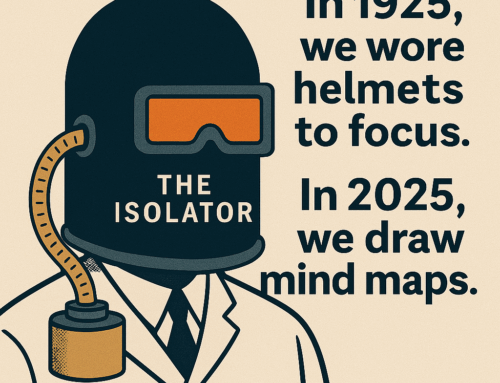Imagine a scenario where a dietitian is providing consultation to a client, meticulously crafting a diet plan tailored to the client’s health condition and specific needs. However, the client expresses discomfort by saying, “I like this diet plan, but I have a problem—I never feel hungry!”
Did he choose the wrong consultant? Probably!
Similar situations occasionally arise in my own consultancy. When I present my sleek and foolproof time management system to individuals, they respond with statements like, “This looks great, but I have a problem. I simply don’t enjoy working. How can you assist me with that?”
Another client once remarked, “Your system is excellent, but I was seeking something that would give me a kick in the butt to make me work.”
While I am not an expert capable of identifying the root cause of their lack of motivation, I offer a potential solution akin to a doctor prescribing a broad-spectrum antibiotic. I suggest that they read or re-read the book “The 7 Habits of Highly Effective People” by Stephen Covey, which is renowned for its timeless wisdom. Additionally, I recommend an unconventional choice—The Subtle Art of Not Giving a F*ck by Mark Manson.
The 7 Habits of Highly Effective People
“The 7 Habits of Highly Effective People” holds legendary status and has the potential to rectify numerous issues. Stephen Covey’s following teachings offer insights into important aspects that can address their concerns effectively:
Proactivity: Covey provides a profound understanding of proactivity beyond its commonplace usage in people management. Proactivity, according to Covey, involves recognizing that regardless of external circumstances or conditioning, individuals possess the power to choose their attitude and approach towards work. It emphasizes personal responsibility and empowers individuals to take control of their responses to situations.
Principle-centeredness: Covey introduces the concept that everyone has something at the center of their paradigms through which they perceive the world. This central focus acts as a source of security, guidance, wisdom, and power. While some people may prioritize family, money, pleasure, or self, Covey argues that these are misguided choices. Instead, he advocates for being principle-centered, with principles being timeless positive values such as fairness, integrity, honesty, patience, service, quality, and excellence. Basing decisions and actions on these principles serves as a reliable guide.
Manson says that, it’s easy to choose the pleasure that you want but it’s a futile exercise. Instead one should choose the pain they are willing to endure. Seeking constant happiness and pleasure can lead to dissatisfaction and a sense of emptiness. While, the best course of action is to choose the pain or challenges that align with their values and aspirations, embrace the associated discomfort to lead to a more fulfilling and authentic life.
He introduces the idea of “short-term” and “long-term” pleasures. Short-term pleasures are often immediate and superficial, providing instant gratification but lacking lasting satisfaction. Examples of short-term pleasures may include indulging in junk food, mindlessly scrolling through social media, or seeking validation through external sources.
On the other hand, long-term pleasure is about finding a deeper sense of fulfillment and purpose that arises from investing time and effort in pursuits that contribute to personal growth and well-being.. Manson suggests that individuals should prioritize long-term pleasures over short-term ones.






